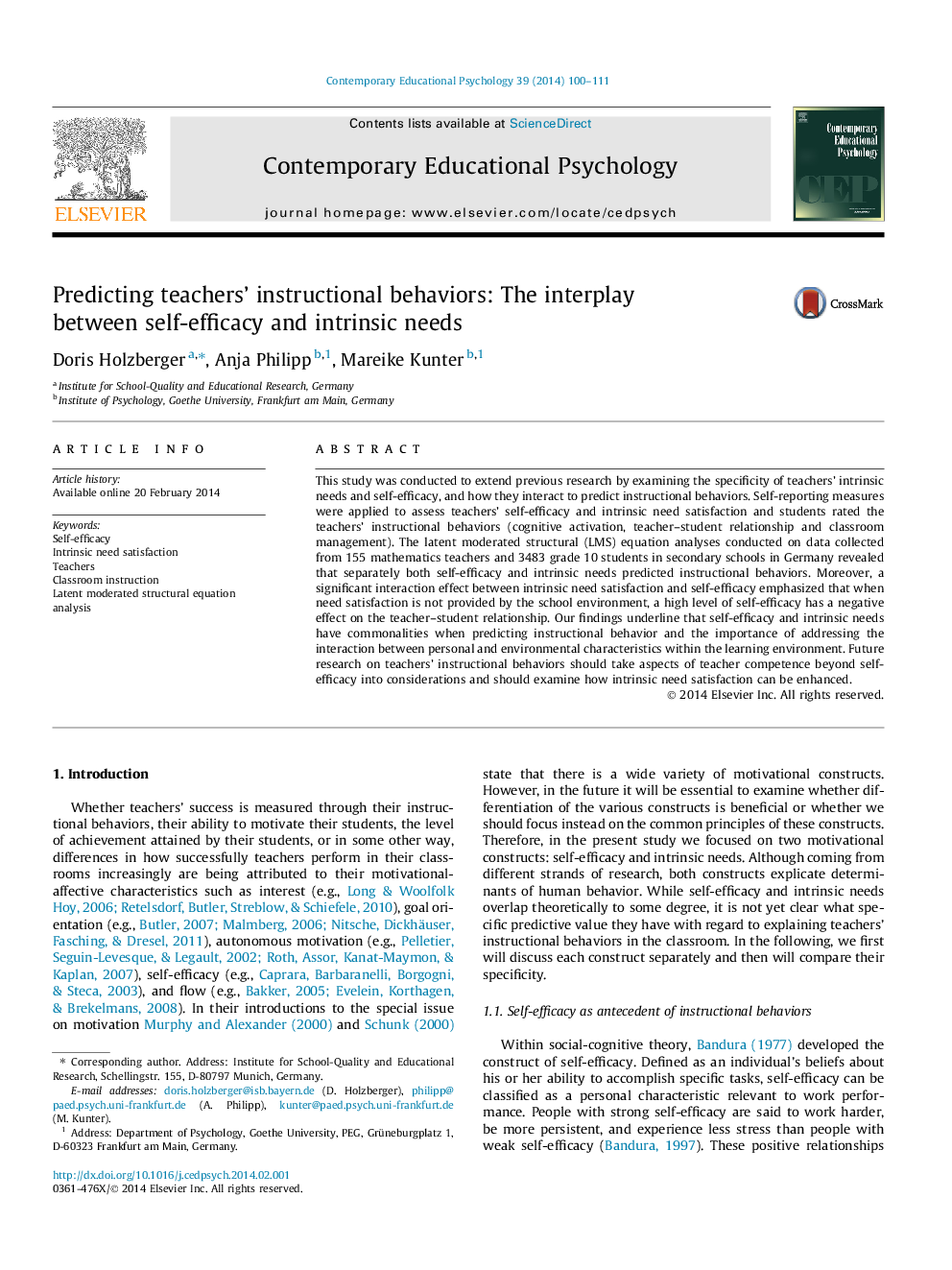| Article ID | Journal | Published Year | Pages | File Type |
|---|---|---|---|---|
| 352636 | Contemporary Educational Psychology | 2014 | 12 Pages |
•Teachers’ intrinsic needs are related to their instructional behaviors.•Teachers’ self-efficacy is not per se positively related to instructional behaviors.•Interaction between person and context predicts teacher–student relationship.•Highly self-efficacious teachers, whose intrinsic needs are met, provide good instruction.
This study was conducted to extend previous research by examining the specificity of teachers’ intrinsic needs and self-efficacy, and how they interact to predict instructional behaviors. Self-reporting measures were applied to assess teachers’ self-efficacy and intrinsic need satisfaction and students rated the teachers’ instructional behaviors (cognitive activation, teacher–student relationship and classroom management). The latent moderated structural (LMS) equation analyses conducted on data collected from 155 mathematics teachers and 3483 grade 10 students in secondary schools in Germany revealed that separately both self-efficacy and intrinsic needs predicted instructional behaviors. Moreover, a significant interaction effect between intrinsic need satisfaction and self-efficacy emphasized that when need satisfaction is not provided by the school environment, a high level of self-efficacy has a negative effect on the teacher–student relationship. Our findings underline that self-efficacy and intrinsic needs have commonalities when predicting instructional behavior and the importance of addressing the interaction between personal and environmental characteristics within the learning environment. Future research on teachers’ instructional behaviors should take aspects of teacher competence beyond self-efficacy into considerations and should examine how intrinsic need satisfaction can be enhanced.
